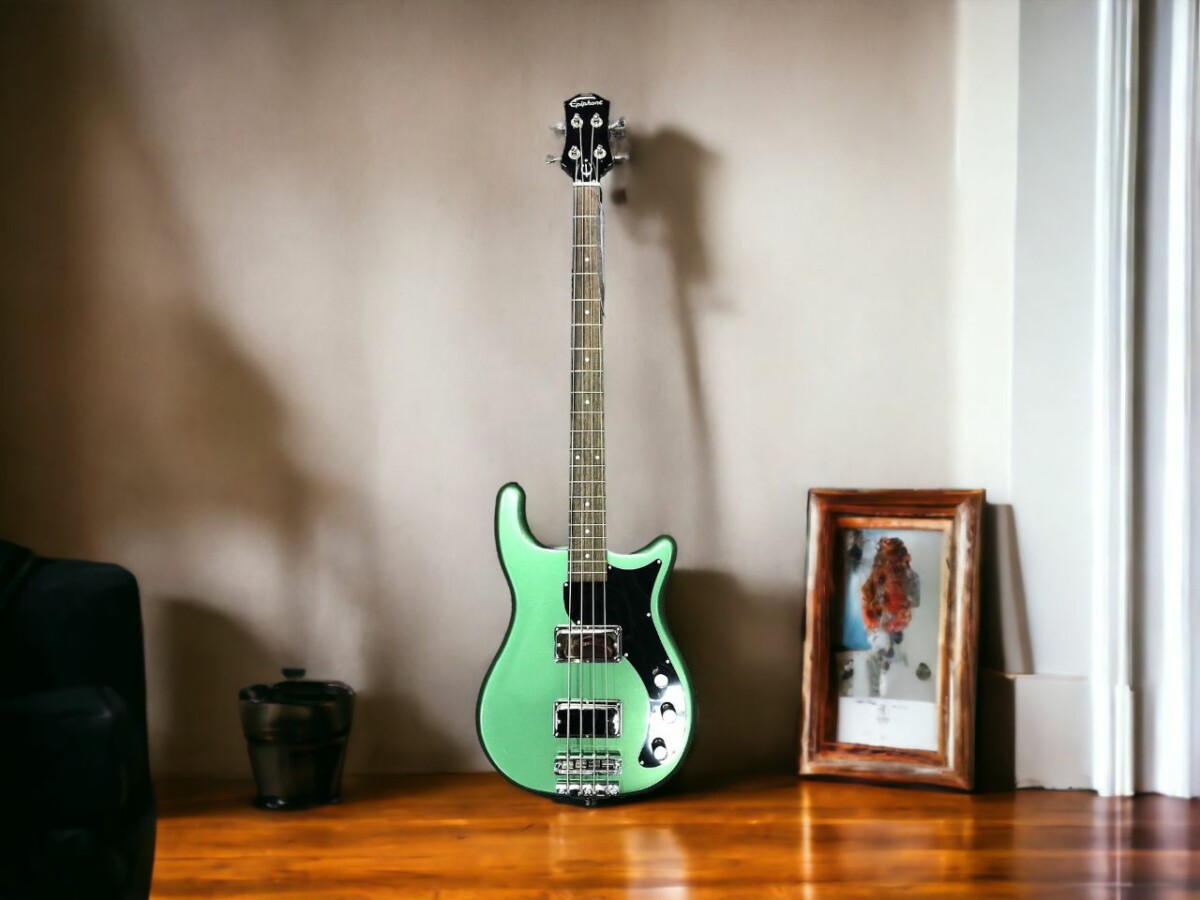So, you’re pretty much a legend on the bass, right? Your fingers move like lightning, weaving together those deep, soulful tunes.
But here’s a question you might not have considered: Can your bass guitar actually ‘go bad’?
Yes, bass guitars can ‘go bad’ over time because of factors like exposure to moisture, extreme temperatures, improper storage, or physical damage.
But hey, don’t stress out! With a little bit of savvy and attention, you can totally avoid this disaster. Ready to dive into the ins and outs of bass guitar maintenance? Let’s make sure your instrument keeps belting out those epic sounds.
Causes of Bass Guitar Deterioration
When it comes to pinpointing why your bass guitar is deteriorating, it’s not as simple as blaming your clumsy fingers or that one time you dropped it. You need to dig deeper, keep your eyes peeled for the subtle ways your environment and habits can mess with your instrument.
Think about it, how does the temperature and humidity in your space impact your guitar? It mightn’t be so obvious, but these factors can play a big role in warping the wood. And let’s not even get started on moisture – that stuff can breed mold and cause decay. Plus, who knew that sunbathing your guitar could be more harmful than helpful? Direct sunlight can be seriously damaging.
So, how do you know when your bass guitar is headed south? Well, there are a few tell-tale signs. Maybe you’ve noticed the neck of your guitar twisting more than a contortionist. Or perhaps the pots, pickups, tuners, and bridges aren’t working as smoothly as they once did. And if your bridge is coming unglued, you know you’ve got a serious problem on your hands.
But remember, this isn’t just about maintaining a shiny, good-looking instrument. Nah, it’s so much more than that. It’s about preserving the powerful, soul-stirring sound of your bass guitar. Because what’s a guitar without its deep, resounding voice?
Identifying Common Issues in a ‘Bad’ Bass Guitar
As you’re totally vibing on your bass guitar, you might spot a few hiccups if it’s starting to lose its groove.
- Fret Buzz: Ever hear a pesky buzz when you’re laying down a killer bass line? It mightn’t just be in your head. This could be a nasty sign of some damage, usually from a bent out of shape neck or some wonky frets. The cost to get this fixed could swing either way, depending on how bad the situation is.
- Loose Hardware: You know those tiny pieces like tuning pegs and pickups? Yeah, they can start to wiggle around, messing with the epic sound you’re trying to produce. A bit of routine maintenance can keep this from turning into a real headache.
- Cracked or Peeling Finish: Now, this is usually a result of your guitar being subjected to some pretty harsh conditions, like crazy temperature swings or getting a bit too damp. While it might seem like a just a surface-level issue, if you leave it be, it could snowball into something much bigger.
The Impact of Environmental Factors on Bass Guitars
When it comes to your precious bass guitar, you need to be mindful of extreme temperatures and humidity. They can seriously mess with your instrument over time. Overheating is a major no-no for your guitar. It can make the neck go all wonky, messing up the intonation. Like, your guitar won’t sound right anymore. And cold temperatures? They’re just as bad. They can make the wood shrink and possibly even crack.
Now let’s dive into the impact of humidity on your bass guitar. When it’s too humid, the wood can start to puff up and twist. Not a good look. But if the air is too dry, it can suck the life out of the wood, leading to cracks and warps. Trust me, you don’t want that. And it’s not just the wood that’s at risk, the electronics can get hit too. Moisture can cause the wiring and other parts to corrode.
Maintenance and Care to Prevent Bass Guitar Damage
To prevent your bass guitar from losing its touch, you need to keep it in check – from tuning to cleaning to storage. It’s all about nurturing your instrument to ensure it lives a long and healthy life. While on the subject of care, some bassists have often wondered if their acrylic nails will interfere with their playing. It’s an interesting angle to consider in the grand scheme of maintaining and adjusting your playing style.
- Tuning: Don’t underestimate the importance of regular tuning. It’s not just about keeping your sound on point, but also about preventing any unnecessary strain on the neck of your guitar. You don’t want your precious bass warping under tension, right?
- Cleaning: Guitars and grime don’t mix. Dirt and sweat mightn’t seem like a big deal, but they can eat away at your strings and fretboard over time. So, wipe it down with a dry cloth after each jam session – your guitar will thank you for it. And don’t forget to whip out the guitar cleaner from time to time.
- Proper Storage: When it comes to storing your bass, think of it like storing a fine bottle of wine. You want it in a cool, dry place, away from any extreme temperatures which could mess with the wood and electronics. If you can, pop it in a hard-shell case for added protection. It might surprise you, but some might ponder if bass guitars need special cables. That’s another facet of ensuring the longevity of your instrument.
If you stay on top of these steps, you’ll not only safeguard your bass guitar’s electronics, but you’ll also keep it sounding and looking as fresh as the day you bought it.
Repair and Restorations: Fixing a ‘Bad’ Bass Guitar
Even if your bass guitar seems like it’s kicked the bucket, don’t freak out. With a bit of elbow grease, the right tools, and a dash of patience, you can bring it back from the depths.
There’s a ton of different stuff that can go wrong with a bass guitar. We’re talking twisted necks, bridges that have lost their glue, or components that have seen better days, like pots or pickups.
Your first mission, should you choose to accept it, is to figure out what the heck is wrong. Got a warped top? Tuners on the fritz? Pinpointing the problem is key.
Next up, you’re gonna need the right gear and any parts that need replacing. Just a heads up, some jobs like sorting out a twisted neck or getting a new bridge might need you to call in the pros.
But hey, if you stay on top of the upkeep and don’t put off any needed repairs, your bass guitar will be jamming out in no time.






